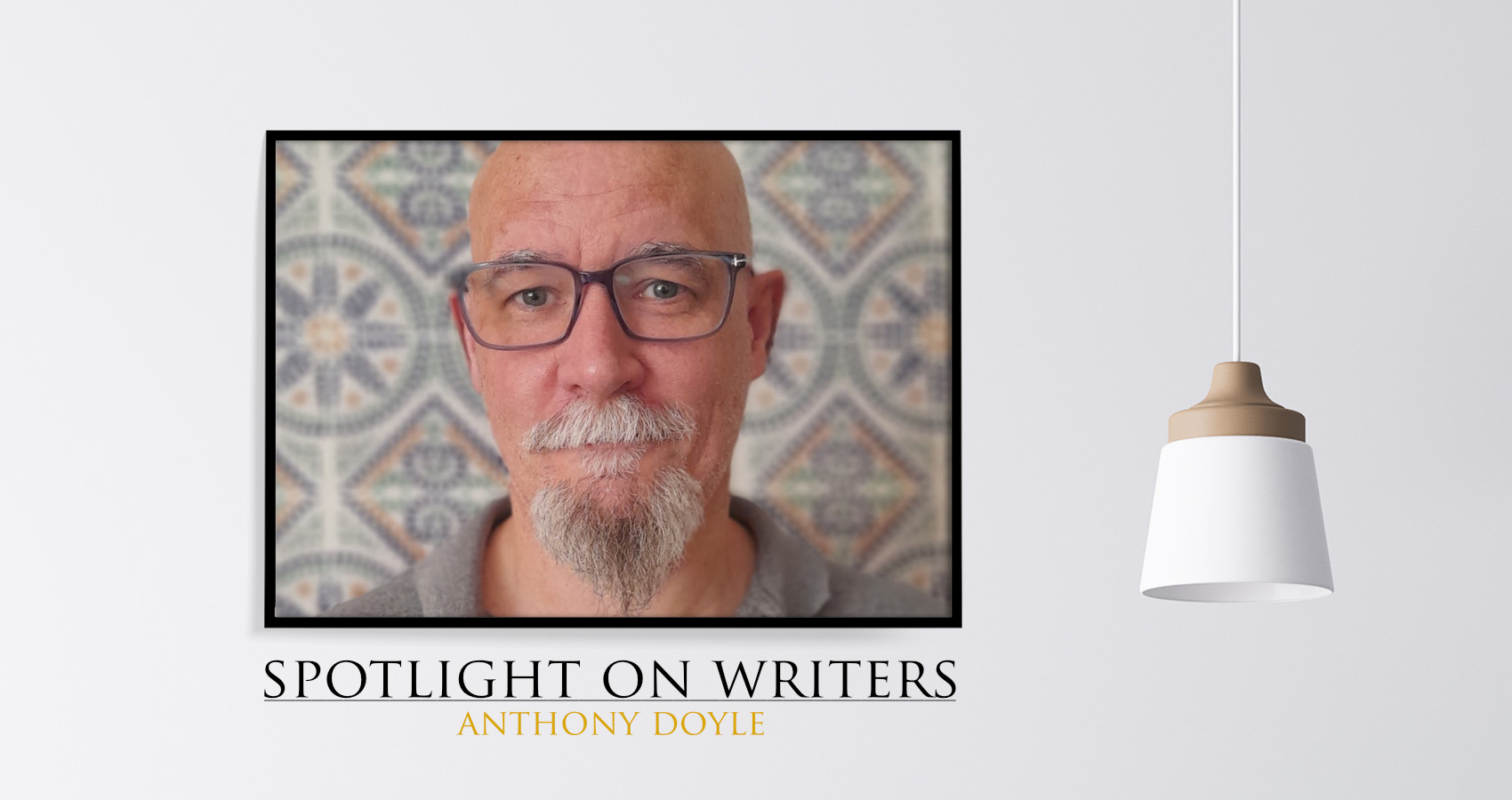Spotlight On Writers
Anthony Doyle
- Where, do you hail from?
- What is the greatest thing about the place you call home?
I live in São Paulo, Brazil, which is the 5th largest city in the world. By the time you think you’ve seen the whole place, everything’s changed. The greatest thing about it is that each neighborhood has its own personality and style, so it’s like many cities rolled into one, and that keeps it interesting. There’s a little of everything here, with strong African, European, Lebanese and Japanese influences, so it’s a real mix. There are some great museums, cultural centers, restaurants, and parks—and sometimes all of those inside a park, as in Ibirapuera—, so there’s always something to do, somewhere to go.
Plus, when you get all citied-out, you can drive for an hour in pretty much any direction and you’ll end up somewhere gorgeous. Brazil’s western and southwestern coasts are lined with Atlantic Forest, so between that and the beaches there are plenty of natural spots to visit just a couple of hours’ drive outside the city.
- What turns you on creatively?
I need to have an idea I want to materialize. Once I do, I’ll pursue it to the ends of the earth. Of course, sometimes ideas don’t flow, so you have to coax them out, so I’ll scribble away in a notebook, or draw something. Free-associating can help when doing that. Usually, a picture will emerge out of the squiggles, or a sentence from the babble, and these very often lead somewhere. It’s like sending the mind fishing. If you give it enough bait, it’ll catch something (I guess it knows all the best spots).
- What is your favorite word, and can you use it in a poetic sentence?
Words fall in and out of favor with me. I used to love “shard”, and it’s a word that has served me well in the past, but I rarely use it anymore. I think I liked it because it reminded me of “shark” (not just the sound, but the dorsal fin kind of shape it conjures. Shards tend to be fin-shaped). Shark is one of my all-time favorite words (and creatures), and I usually find a way to sneak one into every story I write, and quite a few poems too.
But I suppose my favorite is a made-up word I have for rain: chuevo (shuevo). It’s a corruption of the Portuguese “chuva”. Chuevo is kind of onomatopoeic—ssshhuevo—, it suggests sudden wind-hurried rain with just a hint of passing cars. I love it: chuevo (n), chuevar (v), chuevando (pres. part). It just sounds right. Unfortunately, as it’s not a real word I won’t be able to use it in a poem.
- What is your pet peeve?
I have one: putting the full stop inside the quotation marks. For example: “Do not spoil what you do have by desiring what you have not.” Epicurus is a mine of sound advice. It just looks wrong. I’ve had to force myself to start doing it (we were taught to put the quotation marks inside the sentence: “…have not“.). The new way (or American way, I don’t know) doesn’t look that bad when it comes at the end of a paragraph, but it sticks out like a gangrenous thumb when there’s another sentence after the close of the quote. Surely anything that is not left of a full stop must be part of the next sentence!? And, if not, then where is it exactly? In a vacuum in-between, like a little punctuation astronaut who came untethered during a space walk? It just doesn’t make sense… Drives me nuts.
- What defines Anthony Doyle?
Absolutely no idea. Actually, I’d rather not be defined by anything at all. Few things last long enough to define a life by, and those that remain are very universal. There is one thing I really value, admire, enjoy and stand in awe of and that’s imagination, humankind’s superpower. Like all abilities, though, it’s one that needs to be developed, and I’ve been trying to do that since I was a small boy. For as long as I can remember, I’ve always had a project I was working on—whether it was a Darth Vader helmet made out of cereal boxes, or a full-length novel. So maybe that’s what defines me: imagining things, and then trying to figure out how to make them happen. (The novels worked; the Vader helmet was a disaster!).
On a personal level, I’m the father of a wonderful daughter, and being a parent is defining in its own special ways. So that certainly defines me, too.
- Spotlight On Writers – Anthony Doyle - December 9, 2023
- Man is a Guilty Animal - September 18, 2023
- Brain in a Jar - April 12, 2023



